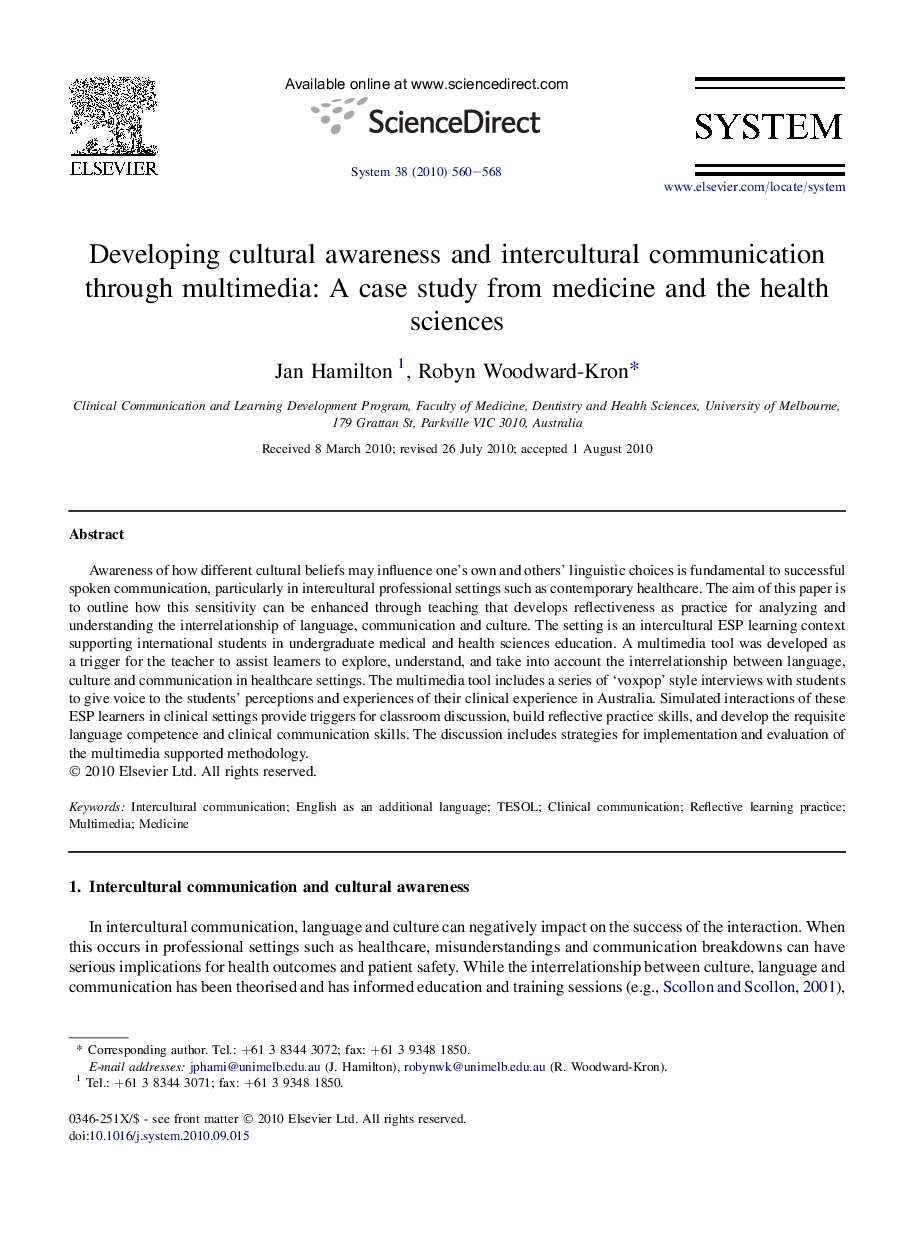| Article ID | Journal | Published Year | Pages | File Type |
|---|---|---|---|---|
| 373538 | System | 2010 | 9 Pages |
Awareness of how different cultural beliefs may influence one’s own and others’ linguistic choices is fundamental to successful spoken communication, particularly in intercultural professional settings such as contemporary healthcare. The aim of this paper is to outline how this sensitivity can be enhanced through teaching that develops reflectiveness as practice for analyzing and understanding the interrelationship of language, communication and culture. The setting is an intercultural ESP learning context supporting international students in undergraduate medical and health sciences education. A multimedia tool was developed as a trigger for the teacher to assist learners to explore, understand, and take into account the interrelationship between language, culture and communication in healthcare settings. The multimedia tool includes a series of ‘voxpop’ style interviews with students to give voice to the students’ perceptions and experiences of their clinical experience in Australia. Simulated interactions of these ESP learners in clinical settings provide triggers for classroom discussion, build reflective practice skills, and develop the requisite language competence and clinical communication skills. The discussion includes strategies for implementation and evaluation of the multimedia supported methodology.
